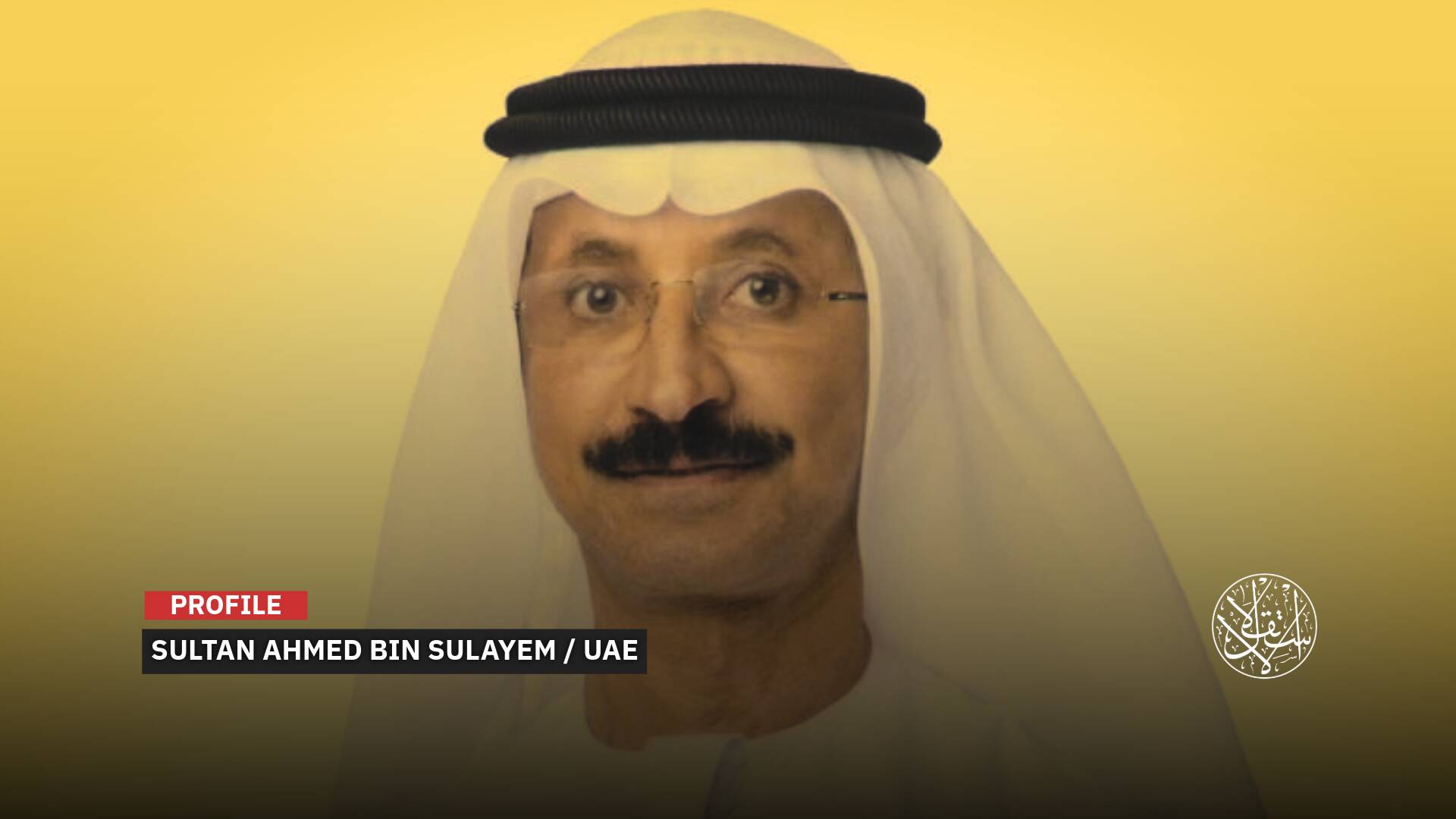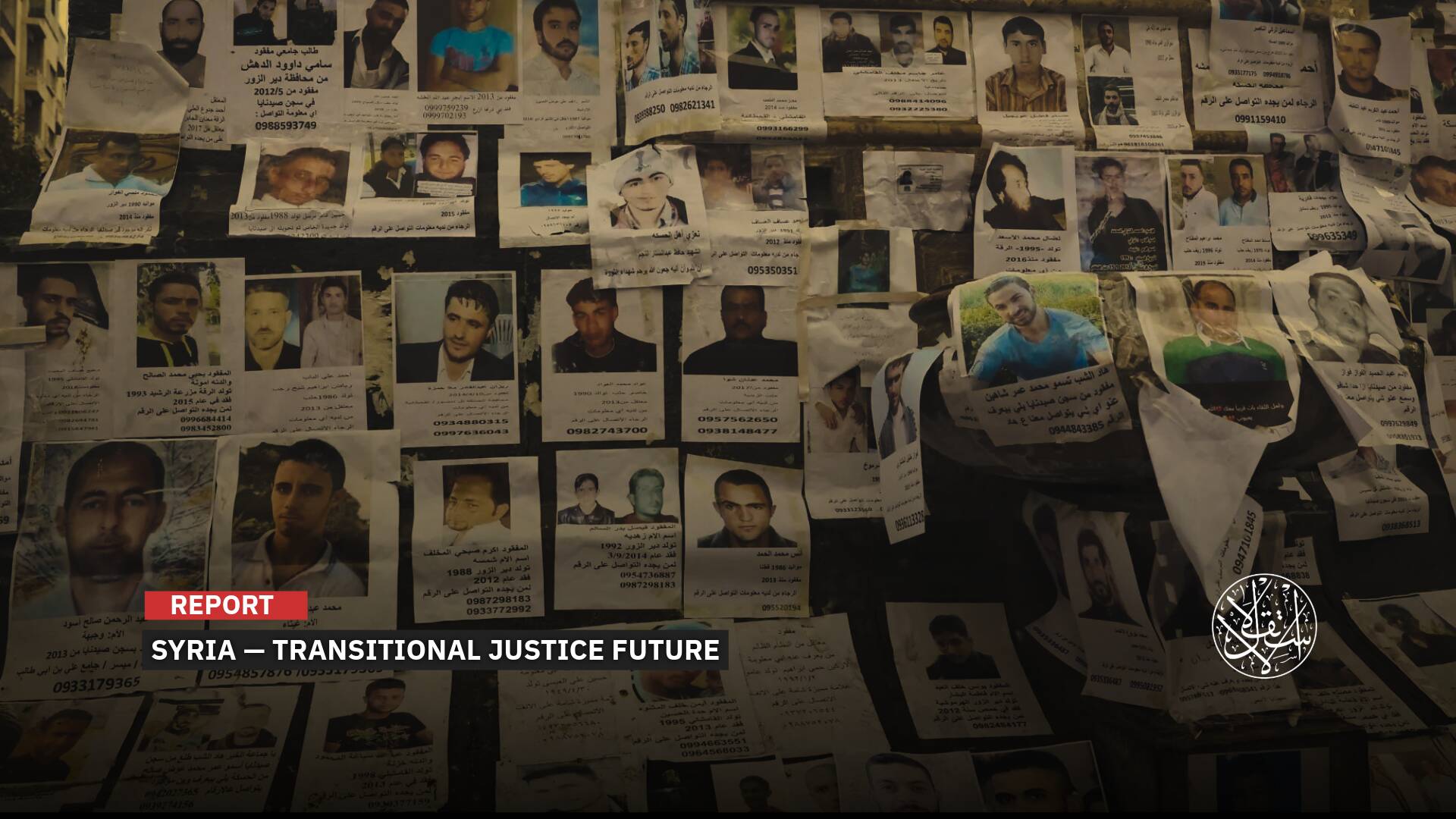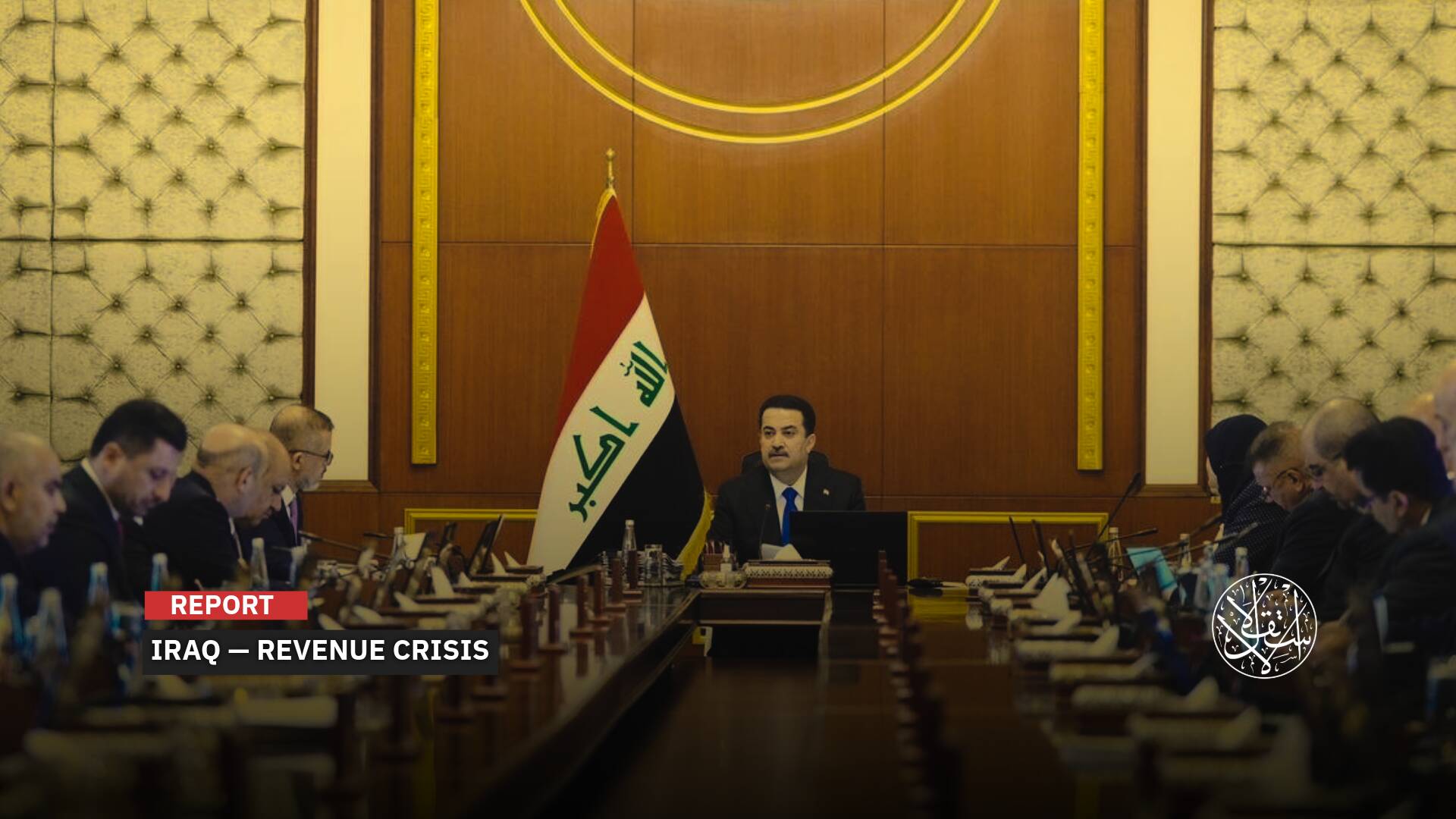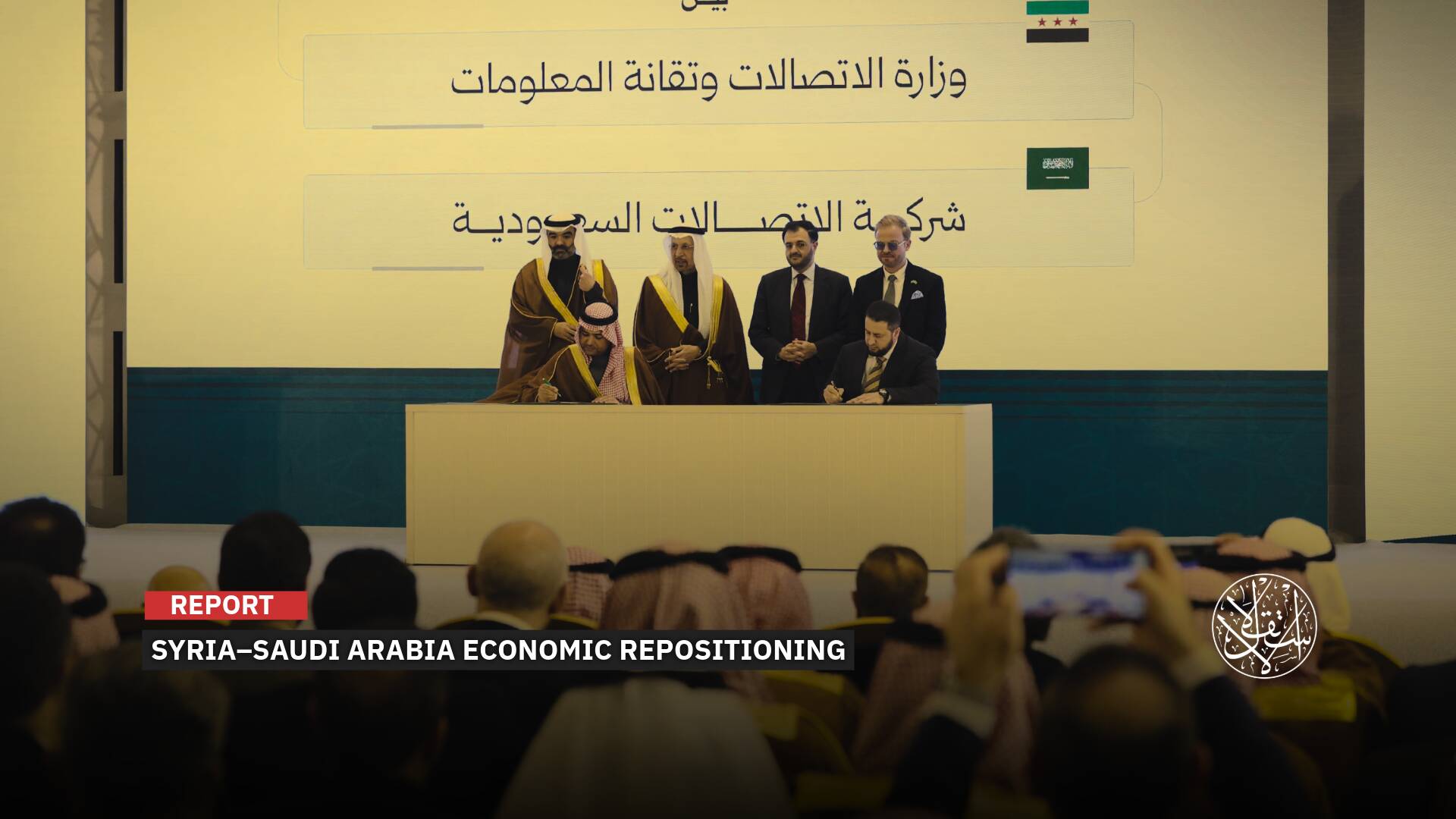Mohammed al-Bashir: The Engineer Leading Syria's Transitional Government After Assad's Ouster

Al-Bashir handed over the Salvation Government at the peak of its influence in Idlib.
Mohammed al-Bashir, an engineer who previously led the Salvation Government in Idlib, has been appointed to head the transitional phase in Syria following the fall of Bashar al-Assad's regime on December 8, 2024.
Ahmed al-Sharaa (Abu Mohammed al-Golani), a senior figure in Syria's military operations and leader of Hay'at Tahrir al-Sham, tasked Mohammed al-Bashir, former head of the Salvation Government in Idlib, with forming a transitional government to oversee the country's administration.
Al-Golani appeared alongside the ousted Assad regime's Prime Minister, Mohammad al-Jalali, on December 9 at the Four Seasons Hotel in Damascus to coordinate the transfer of power.
‘Coordinating the Transfer of Power’
The Military Operations Directorate of Operation Deterrence of Aggression released a video excerpt showing al-Golani speaking with al-Jalali, alongside Mohammed al-Bashir, 41, the former head of the Salvation Government that managed Hay'at Tahrir al-Sham-controlled areas in Idlib.
The meeting is reportedly aimed at coordinating the transfer of power to ensure the continued delivery of services to the people of Syria.
Since November 27, 2024, opposition factions led by Hay'at Tahrir al-Sham launched Operation Deterrence of Aggression, effectively ending Bashar al-Assad's rule.
On the morning of December 8, former Prime Minister Mohammad al-Jalali released a video from his Damascus residence expressing willingness to “cooperate with any leadership chosen by the people.” His statement came after confirming Assad's escape and failed attempts to reach him.
Following the handover of his duties to Mohammed al-Bashir, al-Jalali told Saudi Arabia's al-Arabiya that he would assist in “managing the next phase, overseeing government affairs, and transferring executive authority to the ministers in coordination with members of the Salvation Government and former ministers.”
Many Syrian affairs observers see the al-Golani-al-Jalali meeting as “last-minute power transfer arrangements rather than forming a transitional governing body.”
Before fleeing, Assad had rejected implementing UN Security Council Resolution 2254, issued in 2015, which outlined a democratic transition through four pillars: transitional governance, a new constitution, elections, and counterterrorism.
With Assad’s ousting, some now argue that Resolution 2254 is void, as it required a power-sharing agreement between the former regime and opposition forces.
The Salvation Government was established on November 2, 2017, to oversee administrative and service matters in Idlib, northern Hama, and parts of western Aleppo. Headquartered in Idlib city near the Turkish border, it managed daily life in these areas.
Opposition factions had earlier formed the Military Operations Command, which seized Idlib city in March 2015 after a four-day battle, expelling regime forces.
The Salvation Government, established as the civil wing of Hay'at Tahrir al-Sham, initially comprised 11 ministries under the leadership of Mohammed al-Sheikh. It included ministries of Interior, Justice, Awqaf, Higher Education, Education, Health, Agriculture, Economy, Social Affairs and Displacement, Housing and Reconstruction, and Local Administration.
It also created agricultural, educational, and economic offices, launching service projects within its territories.
The government managed crossings with Turkiye and Assad-controlled areas, leaving some under independent administration.
Notably, the Salvation Government emerged while the opposition's Syrian Interim Government, linked to the Syrian National Coalition, was still operational. It later pressured the Interim Government to shut down its offices in Idlib and vacate the region—a demand that was ultimately enforced.

Mohammed al-Bashir: A Brief Profile
Born in 1983 in Jabal Zawiya, south of Idlib province, Mohammed al-Bashir graduated from Aleppo University in 2007 with a degree in Electrical and Electronic Engineering, specializing in Communications.
In 2011, he served as head of the precision equipment division at the Syrian Gas Company’s processing plant before joining the Syrian revolution, which erupted that March.
According to his profile with the Salvation Government, al-Bashir earned a degree in Sharia and Law with honors from Idlib University in 2021, alongside certification in principles of planning and administrative organization.
On January 3, 2022, when Ali Keda was re-elected for a third term as Prime Minister of the Salvation Government, al-Bashir was appointed Minister of Development and Humanitarian Affairs.
On January 13, 2024, Idlib’s General Shura Council, affiliated with Hay'at Tahrir al-Sham, announced al-Bashir's appointment as Prime Minister of the Salvation Government for its seventh term.
The council stated that a majority vote approved al-Bashir after he outlined his plan for the new term.
Building Experience
Mohammed al-Bashir assumed leadership of the Salvation Government at its peak in Idlib, focusing on improving living conditions and services for local residents.
The government’s media frequently highlighted al-Bashir’s efforts to enhance administrative expertise by addressing challenges across all service sectors in liberated areas.
He also prioritized strengthening ties with community organizations and unions in northwestern Syria, particularly with local industrial and service leaders.
On November 26, 2024, al-Bashir participated in the first conference on pharmaceutical industries and clinical studies in the liberated areas, emphasizing the health challenges facing the region.
He engaged with local residents, community leaders, and elites to review and revise prior government decisions and address shortcomings.
In April 2024, al-Bashir oversaw the development of internal regulations for local councils and their election processes within Hay’at Tahrir al-Sham’s areas of influence.
Responding to university student protests in May 2024, opposing the employment of graduates from regime-controlled universities post-2016, al-Bashir met with students and implemented Decision No. 623, barring such graduates from working in liberated areas.
Al-Bashir also met with Colonel Riad al-Asaad, founder of the Free Syrian Army, and revolutionary leaders to discuss challenges and strategies for the region, as reported by the Salvation Government on September 8, 2024.
During al-Bashir’s tenure, demonstrations erupted against Hay’at Tahrir al-Sham, especially over arbitrary arrests of activists and political figures, according to the Syrian Revolution Coordinators Committee in Idlib.
On May 25, 2024, Interior Minister Mohammad Abdul Rahman vowed to crack down on protests against Hay’at Tahrir al-Sham in Idlib, labeling demonstrators as “agitators inciting chaos.” He urged protesters to reconsider their actions, questioning whether they served or harmed the revolution.
Revolutionary activists in Idlib often call for peaceful protests and civil disobedience, considering them as legitimate forms of popular pressure to influence authority. They stress that such actions end once detainees are released.
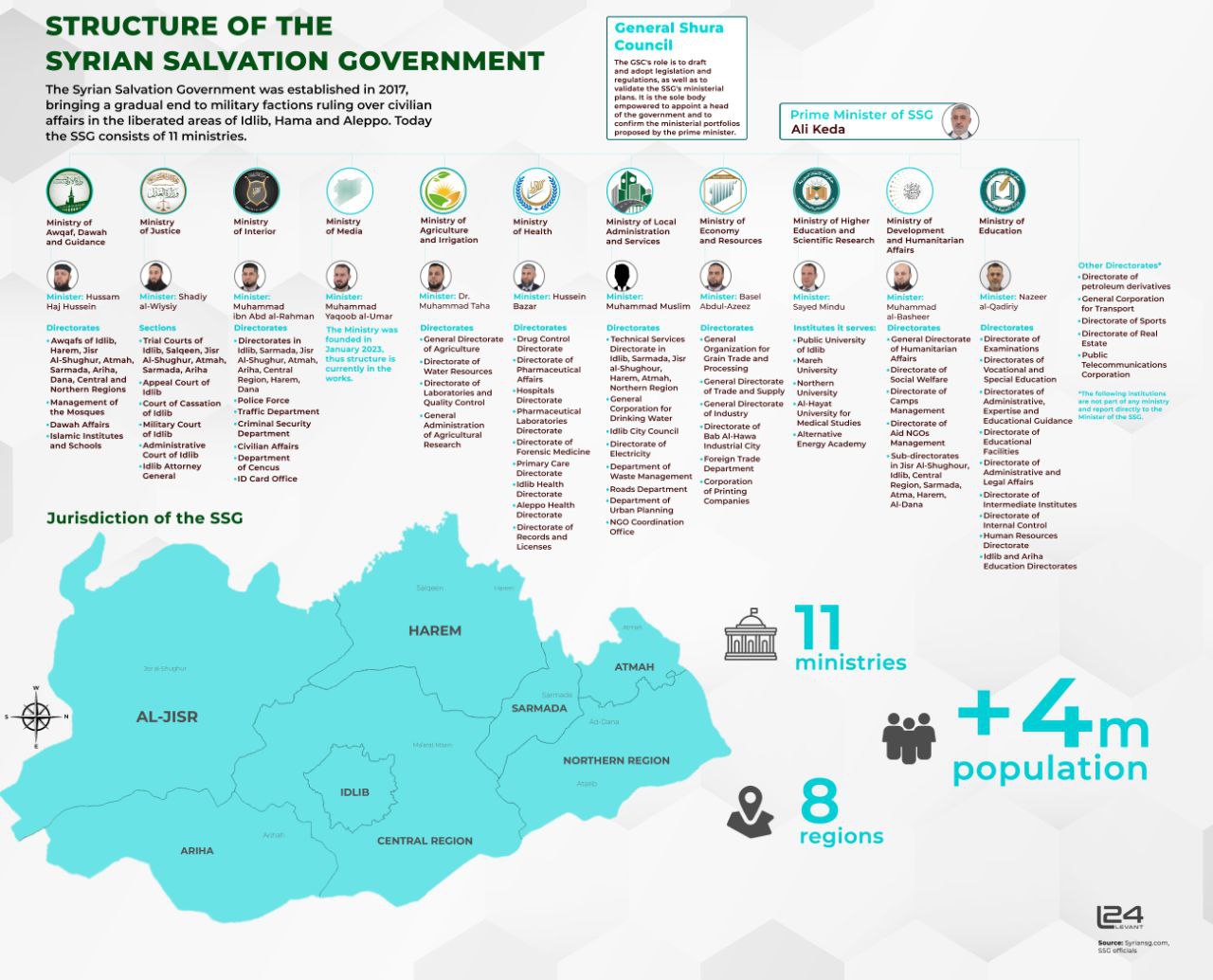
Key Highlights
Following the Syrian opposition's capture of Aleppo, Syria's economic capital, from Assad's forces and militias on November 29, 2024, Mohammed al-Bashir visited the city to oversee the reactivation of institutions.
In press statements, al-Bashir highlighted the “remarkable responsiveness” of government employees to the Salvation Government’s directive to resume work in their offices, underscoring their commitment to rebuilding and revitalizing the city.
He announced that the government had instructed the immediate reactivation of remaining institutions and the establishment of a foundation for “transparent and effective governance as a step toward building Syria’s future.”
Currently, it remains uncertain whether al-Bashir will assign new ministerial positions in Damascus to individuals from his previous cabinet formed in late February 2024.
During his February address, al-Bashir outlined his government’s priorities, emphasizing plans for technological advancement, automation in all institutions, transitioning toward a comprehensive e-government, revitalizing the service sector, achieving economic development, and facilitating investment opportunities.
“We aim to implement programs and plans that instill Islamic and moral values while fostering social cohesion within the community based on the principles of our noble Sharia.”
Notably, minimal changes were made to the structure of the Salvation Government in its latest term, which received full approval from the General Shura Council under Hay’at Tahrir al-Sham in late February 2024. Most ministers retained their positions, except for the Ministry of Development, where Fadi al-Qassem replaced Mohammed al-Bashir, along with new appointments for the Ministers of Health and Higher Education and Scientific Research.
As al-Bashir assumes leadership of the transitional government, some Syrian researchers argue that managing Syria at this stage involves a far greater challenge than governing Idlib, its countryside, and part of western Aleppo, home to about four million people. They emphasize the need for an inclusive government beyond the Salvation Government framework.
Syria’s population is estimated at 24 million, with half displaced internally or living as refugees abroad. Thousands have begun returning to their cities following Bashar al-Assad’s removal.
Sources
- Al-Golani discusses the “transfer of power” in Syria after the fall of Assad [Arabic]
- Prime Minister Eng. "Mohammed Al-Bashir" meets a number of student representatives at Idlib University [Arabic]
- Prime Minister Eng. Mohamed Al-Bashir meets with the Internal Regulations Preparation Committee [Arabic]
- HTS Warns Protesters: 'We Won’t Let the Liberated Areas Fall into Chaos' [Arabic]
- Idlib: Mohammed al-Bashir is the new head of the Salvation Government [Arabic]


